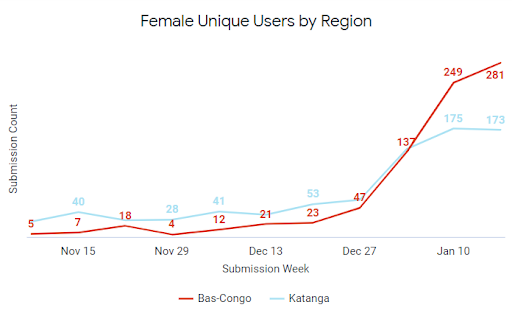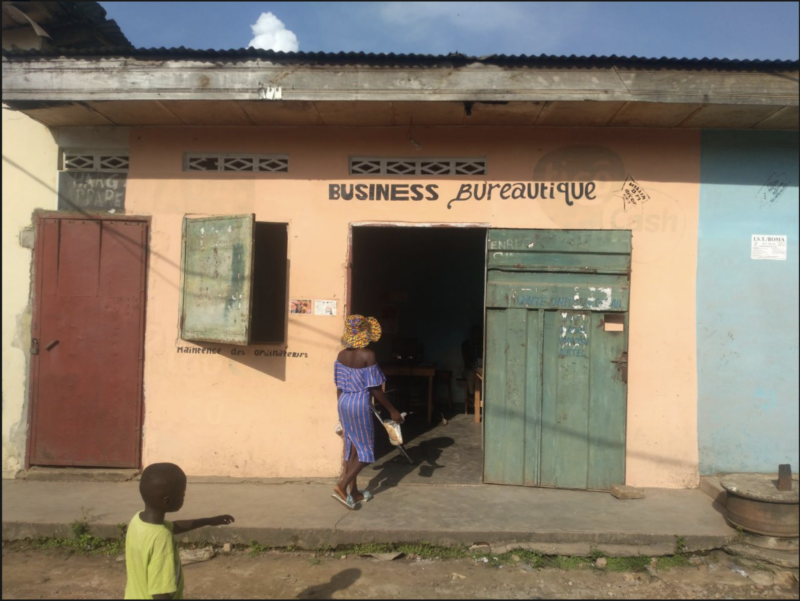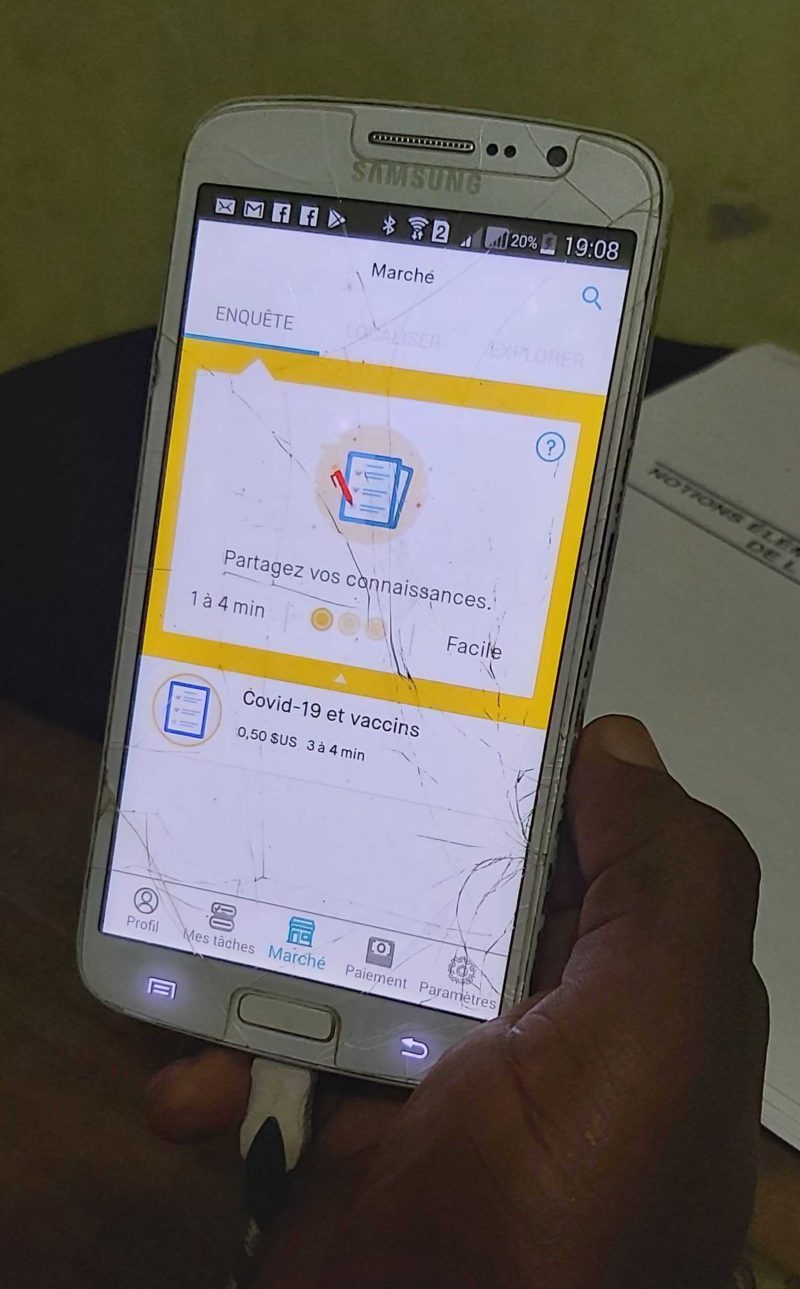Keeping your finger on the pulse in rural and hard-to-reach areas is a major challenge, and collecting quality data on the ground has been made all the more daunting by an ever-changing pandemic. While smartphones and the internet have revolutionized our ability to connect and gather information, the question in the sphere of international development and humanitarian aid is always: do enough people have smartphones and connectivity to use those tools for data collection? And, are there enough women smartphone users to get a representative sample?
A Premise customer recently confronted those two questions, and the results have been highly encouraging.
The MOMENTUM Routine Immunization Transformation and Equity project is a USAID-funded activity focused on measuring changes in uptake and perceptions of COVID vaccines in rural DRC. Premise and the project set out to survey 384 people with a 50/50 gender split in each of two regions every month over a year. The problem, however, was that in these rural regions, the Premise networks of Contributors were quite small and skewed heavily male. In Kongo Central, for example, only eight of our active monthly contributors were women in September 2021.
During the first month of data collection, the numbers looked bleak at best, only reaching 24 females and 88 males in Kongo Central. However, in just a month and a half, Premise effectively grew the networks in both regions for males and females, exceeding data collection goals by January 2022.

Within weeks, Premise was able to grow the number of female Contributor networks in two target regions in the DRC to achieve the customer goal of 384 submissions per month with a 50-50 gender split.
“Premise uses a combination of creative, community-built interventions that focus on building trust with the communities we work in, to help grow and retain networks in the most hard-to-reach parts of the world,” explained Sheila Koohpai, the Growth Marketing Partnerships Lead at Premise. “In this case, we found partnerships with local businesses—many of which are women-owned and operated—really drove the recruitment, engagement, and retention of contributors.”

Locally-hired Premise Community Recruitment Specialists worked to develop relationships with local businesses to recruit new Contributors.
By partnering with local store owners, Premise builds long-term relationships with the communities, engages Contributors, and drives traffic to local small businesses.
Using Premise, not only does the customer get the data they need, but local communities benefit. Premise provides contributors the opportunity to earn money, empowering them to improve their financial situation. One Community Engagement Coordinator noted, “Here in Kongo-Central, the women are very happy because Premise values them… I have been contacted by several women for whom men have bought decent phones.” In a country where 47% of contributors report that they cannot afford enough food for their families, the additional income from Premise tasks provides additional financial security while spurring a rise in smartphone ownership.

Smartphones like this, often purchased for as little as $20, are ubiquitous across even the most rural areas. Premise runs with ease on these models and allows contributors to complete reserved tasks while offline, enabling data collection in areas that lack sufficient internet connectivity.
“Understanding perceptions related to COVID-19, especially among hard-to-reach groups such as women and those living in rural or remote areas, is essential for informing our work with national and sub-national immunization teams. We will largely rely on Premise’s data to monitor trends in perceptions and intentions around COVID-19 vaccination in Kongo Central and Haut Katanga over the next several months” — Saira Nawaz, Senior Evaluation Officer, MOMENTUM Routine Immunization Transformation and Equity project
The question is no longer whether there are enough individuals with smartphones in these regions, but instead, in what innovative ways can we continue to connect with, mobilize, and engage contributors in these rural communities in order to deliver high-quality data to our clients?
To learn more about our international development work, check out our tech demo video or get in touch with us!